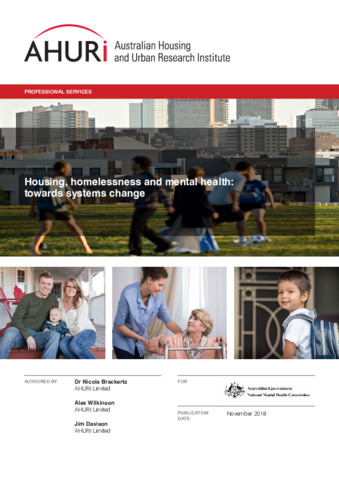Delivered by AHURI Professional Services
For Mind Australia
This research progresses the priority areas identified by the National Mental Health Commission (Commission) and provides evidence about the systemic issues and policy levers that need to be addressed to provide more and better housing and more and better services for people with lived experience with mental ill health.
A number of effective models delivering consumer and recovery oriented housing operate in Australia. However, most are pilot programs, are small in scale, localised, or have time limited funding.
The evidence showed that existing programs that integrate housing and mental health supports are effective in generating government cost savings (especially in health), and reduce hospital admissions and length of hospital stay. They also contribute to tenancy stability, improve consumer mental health and wellbeing, social connectedness and lead to modest improvements in involvement in education and work.
The evidence does not point towards one particular program approach that is suitable for all circumstances or consumers (one size fits all); there is a place for a variety of programs accommodating specific needs.
Successful initiatives have in common certain factors and principles that are essential to facilitating good outcomes. Critical success factors include effective mechanisms for coordination at the state and local levels, cross sector collaboration and partnerships, immediate access to housing (social housing or private rental), and integrated person centred support.


